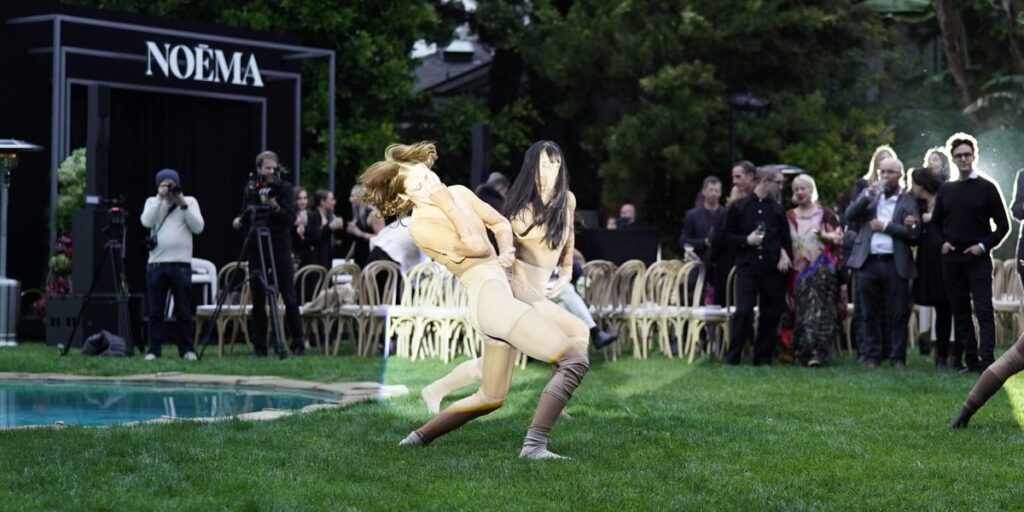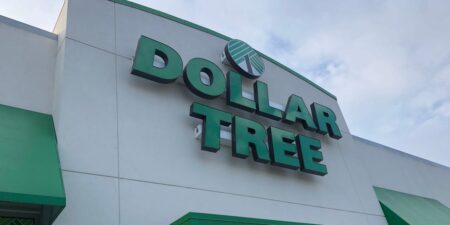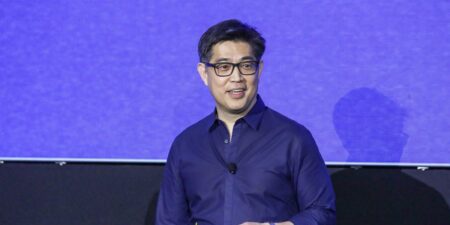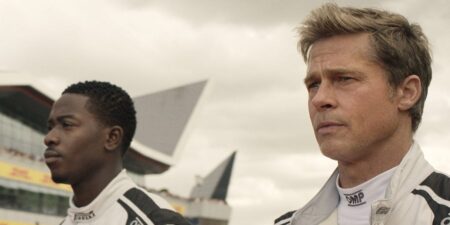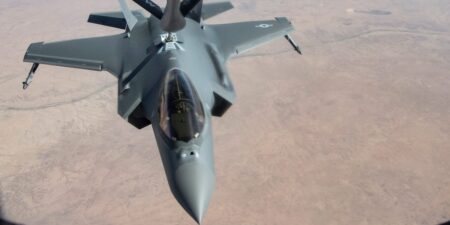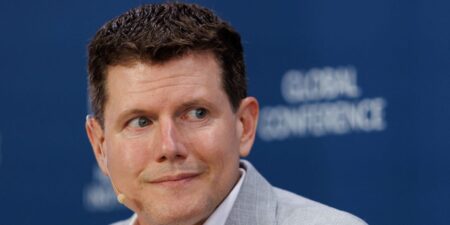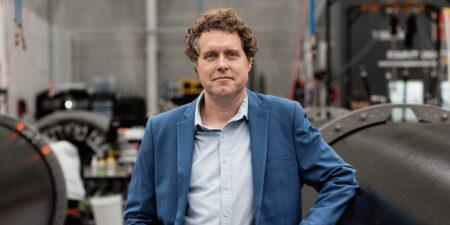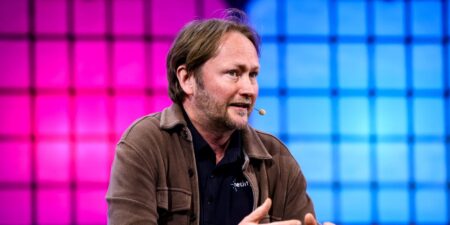If you closed your eyes and only listened to the panels at this year’s Milken Global Conference, you’d think the country was on the verge of a recession.
One of the most common words spoken by executives and investors was “uncertainty.” Treasury Secretary Scott Bessant’s speech — not Peyton Manning or Tony Blair or Henry Kravis — was the hottest ticket in town, with attendees lining up an hour out for his opening remarks.
Pessimism about the US was so high that professional investors are actually looking to put money to work in Europe, long ignored by American firms due to the continent’s slow growth relative to US companies.
“The brand is definitely tarnished now,” said State Street CEO Ron O’Hanley, echoing comments made by Citadel founder Ken Griffin and Apollo CEO Marc Rowan.
“The real question is whether this is permanent,” said O’Hanley, whose firm manages $4.7 trillion, on a panel about the macro environment.
The “animal spirits” energy radiating off the investor class and C-suites in Davos was nowhere to be found on the Milken stages in Beverly Hills, thanks to President Donald Trump’s tariff policies, which have upended global equity and bond markets.
“The mood was unbelievably optimistic” in Switzerland, said Katie Koch, the CEO of $195 billion credit investment manager TCW, while sitting next to O’Hanley onstage, but it’s “the opposite now.”
The gloom onstage didn’t impact the mood
The Beverly Hilton was packed with upward of 5,000 attendees this year, the conference’s biggest showing since 2019, despite ticket prices starting at $25,000 a piece.
Lines snaked around the lobby to see other top speakers like Jessica Alba — even tennis star Novak Djokovic was seen waiting to get in.
Attendees competed not only for seats, but who could land invitations to the most coveted after parties, held at members-only Bird Streets Club, or restaurants like Funke, Cipriani, and AOC. One of the hardest invitations to get was a dinner with Bessent Sunday night.
Walking around the ritzy Beverly Hills hotel, speaking with attendees in the conference’s wellness garden (featuring puppy playtime and “nervous system reset” chairs) or at the numerous after-parties hosted by banks and private equity giants, the mood was much more positive.
“This isn’t the type of food you’d see at a reception during a recession,” one partygoer said Monday evening, as a platter of tuna tartare passed by. The individual, who has been investing in private markets for decades, said he isn’t worried about the economy until after parties put a limit on the number of drinks each person can get from the bar.
People were encouraged by Treasury Secretary Scott Bessent’s comments tying the tariffs to deregulation and tax cuts. While many asset managers are not deploying capital, they’re still fundraising, and meetings with representatives from Middle East sovereign wealth funds were some of the toughest to get. Once he was done speaking on panel, Saudi’s minister of investment Khalid Al-Falih was swarmed by attendees Monday afternoon.
There is also still plenty of optimism around tech and the promise of AI, with self-driving Waymo cars dropping off many attendees and a fridge-sized box in the lobby allowing passersby the chance to speak with a hologram of conference host Michael Milken in several languages.
Elon Musk, who was a popular headliner last year, chose to stay behind closed doors this year, giving an interview to Milken in front of an invite-only crowd Sunday, according to someone who attended. Milken also interviewed Nvidia CEO Jensen Huang Tuesday in front of a packed audience.
At a party held Sunday at billionaire Nicolas Berggruen’s Beverly Hills mansion to celebrate the fifth anniversary of his tech philosophy magazine, Noema, interpretive dancers performed by the pool before journalist Kara Swisher hosted a debate on whether AI makes us more human.
Perhaps one of the best metaphors for the mixed signals at the elite gathering might be the bougie boxed lunches given out each day to the thousands of attendees: An ostensibly austere offering that contained more luxurious options inside, such as salmon with tabbouleh and chocolate mousse.
The US, it seems, is still a hard habit for many investors to kick.
In the same breath that deep-pocketed panelists would criticize trade policies or talk up international opportunities, they’d mention the overwhelming size of the country’s capital markets or innovative culture.
Johnson & Johnson CEO Joaquin Duato, a dual citizen of the US and Spain, paraphrased a Winston Churchill quote to describe businesses’ thinking on the future of the world’s largest economy: “Americans always do the right thing, after trying everything else.”
Read the full article here







